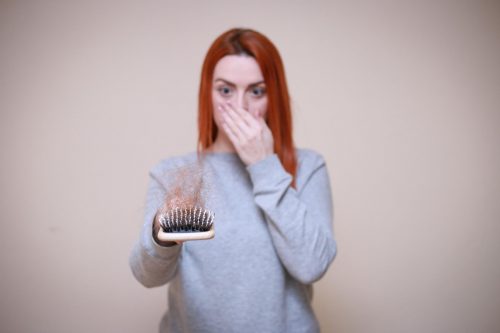
Hair loss – be it noticeable hair thinning or complete baldness – can occur due to various reasons. While the most common reasons are genes and aging, many diseases also cause hair loss of different degrees in men and women. That’s why we consulted Lordhair – a leading hair system brand – to name diseases that trigger hair loss and thinning in men as well as women.
If you have been seeing aggressive hair loss and think there is more to it than seasonal shedding, we highly recommend reading ahead. Let’s start!
Complete alopecia
Complete alopecia, also known as alopecia universalis, is a hair loss condition in which complete loss of hair occurs on the scalp and the body. It is an advanced version of alopecia areata that causes hair loss in the form of round patches throughout the body.
Lupus
At least 5 million people across the globe have this medical condition that causes hair loss in men and women. Lupus is an autoimmune disorder in which the immune system mistakenly attacks the healthy tissue. Although this is a hair loss disease that majorly affects women, more and more males have been affected by this disease in recent years.
Psoriasis
Psoriasis is a condition that emerges when our body makes skin cells too quickly and causes itchy scaly patches on the elbow, trunk, and scalp. While it has no cure, top hair experts recommend using a medicated shampoo at its initial stage to get rid of this hair loss disease. Avoiding this can cause major hair damage!
Browse hair toupees to recover from major hair damage
Thyroid
The thyroid is a gland that releases and controls hormones in the body that regulate metabolism and influence other functions as well. However, when this gland produces more or fewer hormones, it leads to diseases like hyperthyroidism and hypothyroidism. Both can lead to hair loss and weight issues.
High blood pressure
Not really popular as a hair loss condition, it makes an appearance when the blood flow in the body exceeds the normal rate and leads to hypertension. Dermatologists suggest that if you are experiencing chronic hair fall and also have high blood pressure, it’s time to rush to your doctor as soon as possible.
Tinea capitis
Tinea capitis is a fungal infection of the scalp involving both the skin and hair. Also known as ringworm of the scalp, it causes hair loss typically in children but can also affect adults. This disease is often caused by dermatophytes, a parasitizing fungus that thrives on the dead tissue of the scalp.
Recover from hair loss
We know how distressing it is to lose precious hair strands. The following are the most widely recommended hair recovery treatments by dermatologists and healthcare professionals:
One potential way to address hair loss naturally is by ensuring adequate intake of essential nutrients, including iodine to boost hair growth. For more information on the role of iodine in promoting healthy hair growth, you can explore resources such as perfecthairhealth.com.
Other ways include:
-
Minoxidil
-
Finasteride
When it comes to hair loss at the initial stages, it can be managed to some extent through medications and lifestyle changes. However, if extreme hair loss is already there, recovery is almost impossible. In such cases, we recommend using hair systems that are designed using real hair.
Lordhair designs modern hair replacement products for men and women living with temporary and irreversible hair loss conditions. Still have any queries? Drop them in the comments and let’s start a positive discussion on hair loss.
Interesting Related Article: “From Despair to Hair: Cutting-Edge Treatments for Hair Loss“
